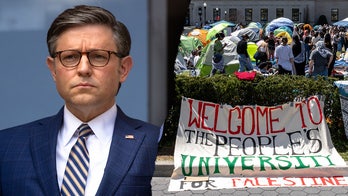The Obama administration is weighing plans to detain some terror suspects on U.S. soil -- indefinitely and without trial -- as part of a plan to retool military commission trials that were conducted for prisoners held in Guantanamo Bay, Cuba.
The proposal being floated with members of Congress is another indication of President Barack Obama's struggles to establish his counter-terrorism policies, balancing security concerns against attempts to alter Bush-administration practices he has harshly criticized.
On Wednesday, the president reversed a recent administration decision to release photos showing purported abuse of prisoners at U.S. military facilities in Iraq and Afghanistan. Mr. Obama cited concern that releasing the pictures could endanger U.S. troops. Mr. Obama ordered government lawyers to pull back an earlier court filing promising to release hundreds of photos by month's end as part a lawsuit brought by the American Civil Liberties Union.
The decision to block the detainee photos contrasts with the administration's release last month of Bush-era Justice Department memorandums outlining the interrogation tactics used on prisoners by the Central Intelligence Agency. The release of the memos set off a heated political fight, with supporters of the Bush administration accusing the Obama White House of endangering the country and some of the current president's supporters calling for criminal probes of those responsible for the interrogation policies.
The administration's internal deliberations on how to deal with Guantanamo detainees are continuing, as the White House wrestles with how to fulfill the president's promise to shutter the controversial prison. But some elements of the plans are emerging as the administration consults with key members of Congress, as well as with military officials, about what to do with Guantanamo detainees.
Sen. Lindsey Graham (R., S.C.), who met this week with White House Counsel Greg Craig to discuss the administration's plans, said among the proposals being studied is seeking authority for indefinite detentions, with the imprimatur of some type of national-security court.




